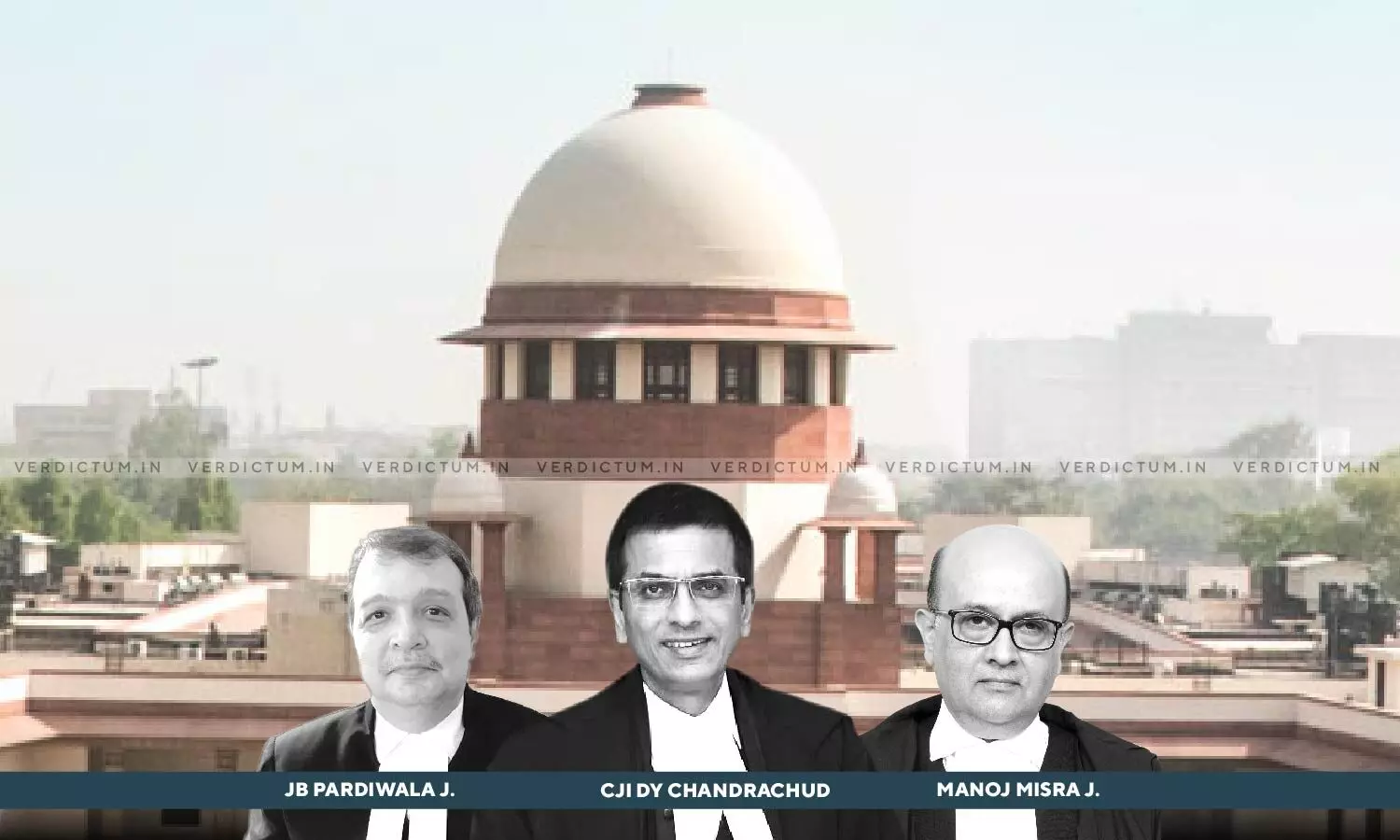
Purely A Matter Of Policy: Apex Court Dismisses PIL Seeking Regulation Of Content On OTT Platforms
 |
|The Supreme Court today dismissed a Public Interest Litigation (PIL) inter alia seeking a direction to the Centre to set up an autonomous body to "monitor and filter content" and regulate videos on over-the-top (OTT) and other platforms in India.
The Bench of Chief Justice DY Chandrachud, Justice JB Pardiwala, and Justice Manoj Misra declined to entertain the PIL.
At the outset, the CJI said, "Your reliefs are to constitute an autonomous body/board, namely Central Board for regulation and monitoring of online video contents (CBRMOV) to monitor and filter the contents and regulate video contents; Appoint an IAS officer of secretary level...these are all..."
"Let governments do things...The problem is the kind of PILs we are now getting; we have no time to read genuine PILs. We are only reading PILs of this nature. These are purely matters of policy. How to regulate the internet, how to regulate the OTT platforms—this is all not something we can do in our jurisdiction of Article 32. This requires stakeholder consultation and multi-stakeholder dialogue. The government has to weigh the pros and cons," the Bench said.
During the hearing, Advocate Shashank Shekhar Jha, appearing in person, submitted, "It may be dismissed if the Court feels so."
Jha submitted, "I came to court earlier, in 2022; thereafter, IT Rules came into existence. The difficulty now is both for creators and viewers; there is a setup where you have to seek permission and you publish a movie. People watch it. On the other hand, there is this setup for OTT, where contents come on their own. No regulation, nothing. So, in 2022, this Hon'ble Court disposed of other matters. Court stated that if we have some difficulty, we can re-approach the Court."
The petitioner-in-person further told the Bench why he has approached the Court again. "Last month, two movies were released, one in theatre and one on OTT. The theatre movie could not be released till date; however, the OTT one got released, and then later, the Ministry had to interfere. My only point is that the right to equality should be maintained," Jha contended.
"Thank you, dismissed," the CJI said.
Jha further requested that he may be granted liberty to approach the concerned Ministry. However, the Court refused his prayer. Accordingly, the Court dismissed the PIL.
Incidentally, the RSS Chief Dr. Mohan Bhagwat had recently called for regulation of content on OTT platforms.
The PIL filed by Advocates Shashank Shekhar Jha and Apurva Arhatia, called for a body to oversee the content on OTT platforms, arguing that self-regulation is insufficient and often not adhered to.
The petitioners referenced the Netflix series IC 814: The Kandahar Hijack to emphasize the need for stricter oversight. The series, claimed to be based on real-life events, was criticized in the PIL for allegedly rewriting history and downplaying the severity of terrorism while subtly glorifying the actions of the hijackers. According to the petition, the show vilifies the Hindu community and promotes a harmful agenda.
The PIL pointed out that while the Central Board of Film Certification (CBFC) regulates films under the Cinematograph Act, there is no similar statutory body to monitor OTT content. It argues that OTT platforms are bound only by self-regulation, which has proven ineffective, leading to the unchecked release of controversial content. "However, no such body is available to monitor/regulate the OTT contents, and they are only bound by the self-regulations, which are not complied with properly, and the controversial contents are shown to the public at large without any checks and balances,” the PIL stated.
The PIL argued that unregulated content on OTT platforms infringes upon fundamental rights, including equality (Article 14), freedom of expression (Article 19), and the right to life (Article 21). It also references Article 47, which mandates the state to improve public health and restrict harmful substances. "The issue pertains to the abuse of fundamental rights of equality (Article 14), freedom of expression (Article 19), thus infringing right to life of people at large (Article 21) and Article 47 mandating state to improve public health and prohibit the consumption of intoxicating drinks & drugs harmful to health," it read.
The petition further criticizes the existing IT Rules 2021, introduced to self-regulate OTT platforms, claiming that they have been ineffective in controlling the content that is accessible to the public. Over 40 OTT and video streaming platforms in India offering paid, ad-supported, and free content are said to abuse the right to free expression by releasing unmoderated material that could have negative societal impacts.
Cause Title: Shashank Shekhar Jha & Anr. v. Union of India [W.P.(C) No. 669/2024; Diary No. 41557/2024]